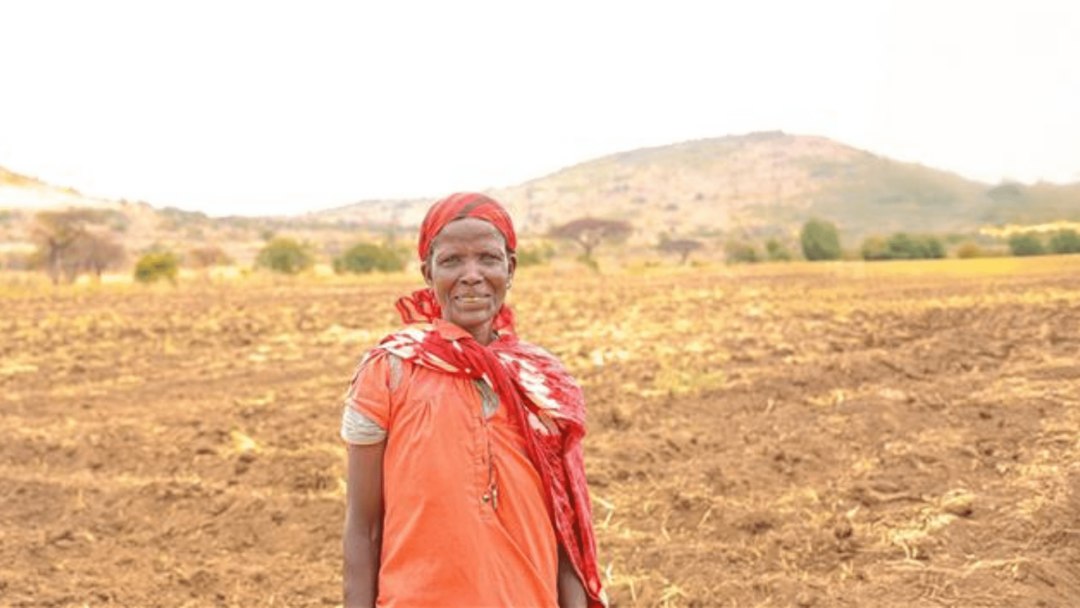 Stories
Stories
May 23, 2025 • 3 min read
In Ethiopia’s Gomole district, livestock farming isn’t just a livelihood, it’s a way of life, deeply rooted in tradition and culture. But when a devastating drought wiped out 60% of the region’s livestock, everything changed. For farmers like Acha Duba and Alo Sora, pastoral farming was no longer sustainable, as their animals could not survive the harsh conditions. In response, GOAL, with funding from the Ethiopia Humanitarian Fund (EHF) introduced a mechanised farming programme, offering a new path forward for those left struggling to rebuild their lives.
A Livelihood Built on Livestock
For generations, the pastoralists of Gomole district in Borena thrived on the wealth of their livestock. Cattle were more than just a source of milk and dairy products, they were a symbol of status, prosperity, and a way of life. In local markets, dairy fetched high prices, reinforcing livestock ownership as a marker of success. Agricultural farming, by contrast, carried a stigma, and only a few practiced both arable and pastoral farming.
But two years ago, everything changed. A drought swept through the district, eliminating nearly 60% of the livestock, and leaving families without their primary source of income, nourishment, and identity. The loss was staggering, an estimated 31 billion ETB (approximately €212.9 million) in livestock assets vanished. For the people of Gomole, it wasn’t just an economic disaster; it was the collapse of a centuries-old way of life.
The Devastating Impact of Drought
Alo Sora, a 47-year-old farmer from Buya Kebele in Gomole district, was one of the few who practiced both farming and livestock rearing. When the drought struck, his life, like so many others, was turned upside down. Before the drought, his farm provided enough to feed his family and even share with neighbours. But with his bulls gone, animals crucial to ploughing his fields, his agricultural work came to a standstill.
“We used to hear stories from our parents about droughts this severe, but we had never lived through anything like it,” he recalled. “I lost nine livestock and was left with only a cow and a calf.”
For Achale Duba, a 45-year-old widow practicing both agricultural and pastoral farming, the drought had a similarly devastating effect on her livelihood. Prior to the drought, her farming practice was a success, providing for her eight children and inspiring others in her community to follow agricultural and pastoral farming as a more sustainable and dependable livelihood. However, during the drought, she lost seven livestock, making it impossible to continue farming. “It is not easy to sustain eight children with just a few livestock,” Achale explained. “Farming was not an option for me anymore after losing my cattle.”

GOAL’s Interventions for Change
Recognising the urgent need for support, GOAL launched a pre-emptive project in November 2024, funded by the Ethiopia Humanitarian Fund (EHF), to help pastoralists and mixed farmers rebuild their lives. With livelihoods shattered and futures uncertain, the project focused on those 340 of the most affected households across four municipalities in the Gomole district. These families were selected based on their farming experience, the extent of their losses, their vulnerability to future crises, and their limited ability to recover on their own. For many farmers, this initiative offered a vital lifeline in the face of an uncertain future.
Under this project, GOAL introduced a village mechanised farming programme. Each household received 10,969 ETB (approximately €52.26) to facilitate the cultivation of their farmland using tractors, eliminating the vulnerability associated with livestock farming. Half of the funds were allocated for purchasing and planting improved seeds.
“We are grateful for the assistance provided by GOAL and its supporters. Now we are back to farming,” Alo shared. “The community’s perception of farming has changed significantly. People now realise that relying solely on livestock is not sustainable. Many of us are even considering diversifying into small trade.”
Standing amidst their farmland, Alo and Achale expressed hope for a better harvest in the upcoming rainy season thanks to the GOAL farming programme. GOAL is also linking these farmers with complementary projects designed to boost productivity and improve harvest management. By equipping them with the tools and knowledge needed to sustain their livelihoods, the initiative aims to help them navigate periods of uncertainty and build sustainable futures.
Through initiatives like these, the community of Gomole is rebuilding its resilience, embracing farming as a viable livelihood, and looking toward a more secure and diversified future.
